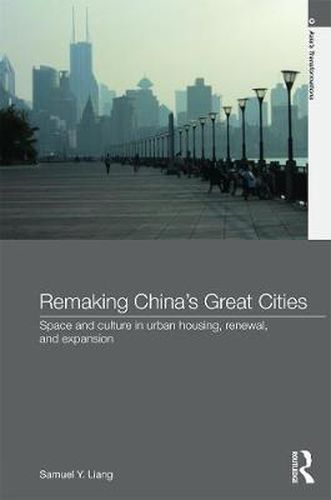Readings Newsletter
Become a Readings Member to make your shopping experience even easier.
Sign in or sign up for free!
You’re not far away from qualifying for FREE standard shipping within Australia
You’ve qualified for FREE standard shipping within Australia
The cart is loading…






This book argues that the production of new urban spaces is a crucial means of state governance in contemporary urban China. The local officials reinforce their political and economic dominance by applying their visions of modernization and globalization to urban planning and regeneration. The implementation of such plans revalorizes the established revolutionary utopianism and authoritarianism by producing radical changes in social space. The state-led spatial production also spawns broad political and cultural discourses at both elite and grassroots levels. These discourses are instrumental in the contests for power, or financial interests associated with spatial rearrangements, between local officials, corporate elites, and the general public. The complexities of this spatial culture reflect the postmodern and postcolonial conditions of urban China and entail critiques of the official visions of modernity. Samuel Y. Liang highlights local and historical factors and their negotiation with national and global factors in the spatial production and discourses, and frames them in light of theories of modernist architecture and planning, postmodernism, urban entrepreneurialism, and the continued Chinese revolutionary culture and governance.
$9.00 standard shipping within Australia
FREE standard shipping within Australia for orders over $100.00
Express & International shipping calculated at checkout
Stock availability can be subject to change without notice. We recommend calling the shop or contacting our online team to check availability of low stock items. Please see our Shopping Online page for more details.
This book argues that the production of new urban spaces is a crucial means of state governance in contemporary urban China. The local officials reinforce their political and economic dominance by applying their visions of modernization and globalization to urban planning and regeneration. The implementation of such plans revalorizes the established revolutionary utopianism and authoritarianism by producing radical changes in social space. The state-led spatial production also spawns broad political and cultural discourses at both elite and grassroots levels. These discourses are instrumental in the contests for power, or financial interests associated with spatial rearrangements, between local officials, corporate elites, and the general public. The complexities of this spatial culture reflect the postmodern and postcolonial conditions of urban China and entail critiques of the official visions of modernity. Samuel Y. Liang highlights local and historical factors and their negotiation with national and global factors in the spatial production and discourses, and frames them in light of theories of modernist architecture and planning, postmodernism, urban entrepreneurialism, and the continued Chinese revolutionary culture and governance.